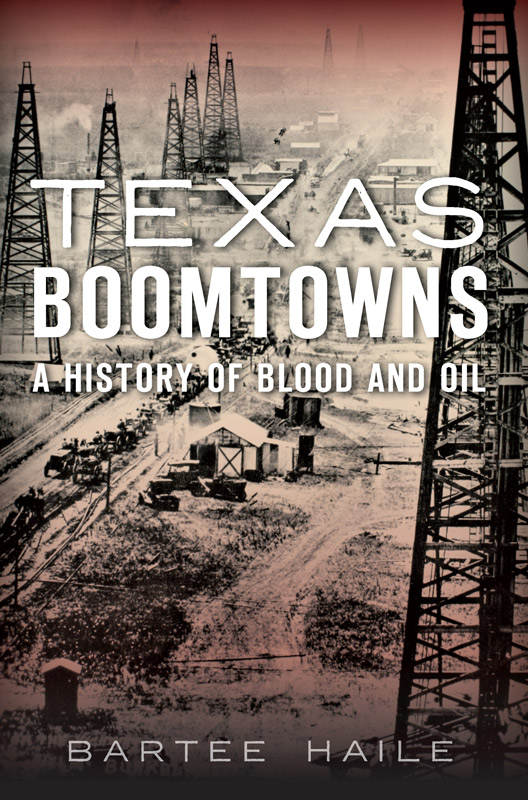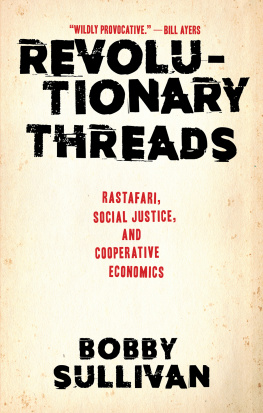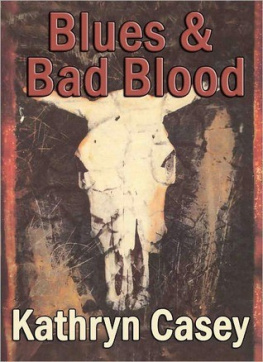Haile - Texas Boomtowns:: A History of Blood and Oil
Here you can read online Haile - Texas Boomtowns:: A History of Blood and Oil full text of the book (entire story) in english for free. Download pdf and epub, get meaning, cover and reviews about this ebook. year: 2015, publisher: Arcadia Publishing Inc., genre: Detective and thriller. Description of the work, (preface) as well as reviews are available. Best literature library LitArk.com created for fans of good reading and offers a wide selection of genres:
Romance novel
Science fiction
Adventure
Detective
Science
History
Home and family
Prose
Art
Politics
Computer
Non-fiction
Religion
Business
Children
Humor
Choose a favorite category and find really read worthwhile books. Enjoy immersion in the world of imagination, feel the emotions of the characters or learn something new for yourself, make an fascinating discovery.

- Book:Texas Boomtowns:: A History of Blood and Oil
- Author:
- Publisher:Arcadia Publishing Inc.
- Genre:
- Year:2015
- Rating:3 / 5
- Favourites:Add to favourites
- Your mark:
- 60
- 1
- 2
- 3
- 4
- 5
Texas Boomtowns:: A History of Blood and Oil: summary, description and annotation
We offer to read an annotation, description, summary or preface (depends on what the author of the book "Texas Boomtowns:: A History of Blood and Oil" wrote himself). If you haven't found the necessary information about the book — write in the comments, we will try to find it.
Haile: author's other books
Who wrote Texas Boomtowns:: A History of Blood and Oil? Find out the surname, the name of the author of the book and a list of all author's works by series.
Texas Boomtowns:: A History of Blood and Oil — read online for free the complete book (whole text) full work
Below is the text of the book, divided by pages. System saving the place of the last page read, allows you to conveniently read the book "Texas Boomtowns:: A History of Blood and Oil" online for free, without having to search again every time where you left off. Put a bookmark, and you can go to the page where you finished reading at any time.
Font size:
Interval:
Bookmark:



Published by The History Press
Charleston, SC
www.historypress.net
Copyright 2015 by Bartee Haile
All rights reserved
First published 2015
e-book edition 2015
ISBN 978.1.62585.622.7
Library of Congress Control Number: 2015949873
print edition ISBN 978.1.46711.823.1
Notice : The information in this book is true and complete to the best of our knowledge. It is offered without guarantee on the part of the author or The History Press. The author and The History Press disclaim all liability in connection with the use of this book.
All rights reserved. No part of this book may be reproduced or transmitted in any form whatsoever without prior written permission from the publisher except in the case of brief quotations embodied in critical articles and reviews.
For the thousands of Texans who risked life and limb to usher in the Age of Oil and the loved ones so many tragically left behind.

Library of Congress .
CONTENTS
ACKNOWLEDGEMENTS
The rare and remarkable photographs are what make this a special book. As the credits show, most of the truly outstanding images come from two sources: the DeGoyler Library at Southern Methodist University in Dallas and the Houston Metropolitan Research Center. This is my third collaboration with Timothy J. Ronk and Joel Draut at the HMRC, and once again, they have gone above and beyond the call of duty on my behalf. Curator of photographs Anne Peterson, plus Katie Dziminski and Terre Heydari, was a wonderful surprise. They went out of their way to assist a stranger they know only from e-mails and telephone calls. To all the above, my heartfelt appreciation.
And as always, I am deeply indebted to my wife, Gerri, whose contributions as proofreader, editor and constructive critic continue to make me a better writer.
INTRODUCTION
In 1964, the year I graduated from high school in suburban Dallas, gasoline was selling for 19.9 cents a gallon. I could fill up my Plymouth Valiant convertible for $4.00 or less, depending on how empty the tank was when I coasted into the station, and get a free glass and trading stamps. That was in the middle of what was called back in those days a gas war.
The point of that personal anecdote from the distant past is that the fossil fuel for our internal combustion engines was so cheap we did not think about it. We pulled up to the pump, yanked the spare change from our pockets and handed it to the attendant with instructions to put in that much. Yes, a stranger pumped the gas for you!
As a native Texan, I knew, of course, that I lived in the state with more oil than any other place in the world. On long drives to West Texas, where most of my relatives lived, I saw more derricks and pump jacks than I could have counted had I chosen to pass the time that way. And I listened to older members of my extended family tell hair-raising stories of the boomtownsMexia, Ranger, Desdemona and Borgerthat forever changed the Lone Star State.
So it could be said that this book was sixty years in the making, though I would say the last thirty-two have had the most influence because thats how long I have been writing the only statewide newspaper feature on the history of Texas. Of the 1,670 columns I have researched and written up to now, the subject of more than a few has been the gusher era and oil boomtowns. It is a popular topic with most of my readers, but there are exceptions.
The one that comes to mind is a woman who strenuously objected to the terrible wrong I had done her hometown of Mexia. She had lived there all her life and never heard of the oil boom getting so out of hand that the governor had to declare martial law and send in the National Guard. That never happened, she insisted with righteous indignation, and concluded her letter with the demand that I stop telling such vicious lies.
I decided that the most effective answer was to mail her copies of the newspaper and magazine articles, as well as book excerpts, on which the offensive column was based. Once she had read and digested this material, I invited her to let me know if she still believed I made the whole thing up. Needless to say, I never heard another peep out of the poor woman, who evidently had been the unwitting victim of a code of silence on a sensitive subject.
I am prepared for similar letters and e-mails in response to the publication of Texas Boomtowns: A History of Blood and Oil . Again I will strive to show polite restraint and hopefully help open a closed mind. At the same time, I do understand why some people take so personally the public airing of dirty linen, whether it concerns kinfolk or their community. But in the end, the truth will come out like it or not.
BARTEE HAILE
AUGUST 2015
IT ALL STARTED AT SPINDLETOP
Texas at the end of the nineteenth century was the land of cattle and cotton. Since there were no cows to punch and no cotton to pick in town, 83 percent of the 4 million Texans lived out in the country or in communities with less than 2,500 people. San Antonio, Houston, Dallas and Fort Worth, the four largest cities, in that order, had a combined population of 167,000. Texas, like the rest of the old South, was a rural state, pure and simple.
The fact that there was oil in Texas was no secret. For centuries Indian tribes had wondered what to do with the black, sticky substance that oozed from the ground and thickened into puddles. Spanish explorers who came across tar balls on the beaches in the 1500s used the gooey substance to waterproof their leather boots.
For nineteenth-century ranchers and farmers desperate for water, oil was an annoyance that got in the way and poisoned their wells. As late as 1902, W.T. Waggoner, owner of one of the biggest ranches in the Lone Star State, famously said, I wanted water, and they got me oil. I tell you I was mad, mad clean through. We needed water for ourselves and our cattle to drink. He sang a different tune a decade later after the Electra discovery added millions to the Waggoner family fortune.
Most historians credit Lyne T. Barret with drilling the first productive oil well in Texas history near Nacogdoches in 1866, the year after the end of the Civil War. He strived to scrounge up the money and technology to make the most of the find but struck out on both counts. Reconstruction made investors skittish about risking their capital in Texas, no matter how promising the prospects, and the equipment had not been invented to efficiently pump, store and transport crude oil (often just called crude) to market. The biggest problem was what to do with the oil once it was extracted. Locomotives and other steam-powered engines burned coal. Before the mass production of motor vehicles with internal combustion engines, the primary uses for the fossil fuel of the future was lubrication and kerosene for lamps, a limited market to be sure.
Due more to a lack of interest than a lack of effort, thirty years passed without any progress on the petroleum front in the Lone Star State. Then one day in 1897, an executive with Standard Oil opened a letter with a Corsicana, Texas postmark. It was from the top official of a town Joseph Stephen Cullinan had never heard of, and the mayor swore with the zeal of a tent evangelist that his community was sitting on top of a fortune in black gold.
Font size:
Interval:
Bookmark:
Similar books «Texas Boomtowns:: A History of Blood and Oil»
Look at similar books to Texas Boomtowns:: A History of Blood and Oil. We have selected literature similar in name and meaning in the hope of providing readers with more options to find new, interesting, not yet read works.
Discussion, reviews of the book Texas Boomtowns:: A History of Blood and Oil and just readers' own opinions. Leave your comments, write what you think about the work, its meaning or the main characters. Specify what exactly you liked and what you didn't like, and why you think so.




